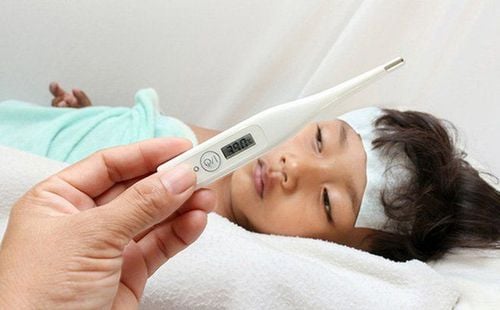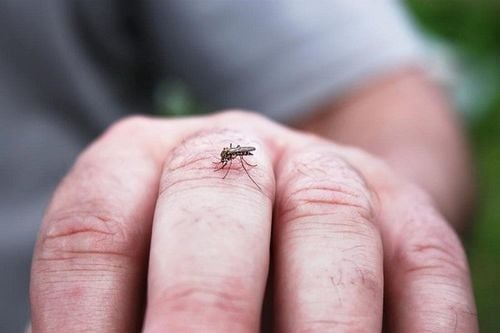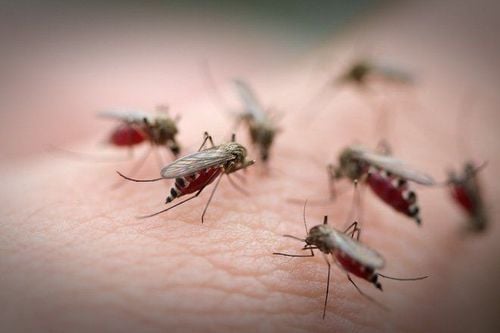The clinical manifestations of dengue fever are quite diverse, and the progression of severe dengue can be rapid, potentially leading to death quickly. Therefore, early detection and timely treatment are very important
1. Progression of Dengue Fever
Complicated dengue fever can lead to rapid death of the patient. The disease usually starts suddenly and progresses through 3 specific stages:
Stage 1: The patient will have a fever for the first 3-5 days, which can reach up to 38-40°C, accompanied by symptoms such as headache and generalized joint pain.
Stage 2: This is the dangerous stage, occurring from the 4th to the 7th day after fever onset. The patient may have a reduced fever during this stage and exhibit signs such as pleural effusion, plasma leakage (within 24-48 hours), interstitial tissue involvement, periorbital edema, abdominal membrane inflammation, and liver enlargement with pain. In cases of severe plasma leakage, the patient may go into shock, showing symptoms such as restlessness, cold limbs, rapid and weak pulse, cold and clammy skin, low or undetectable blood pressure, oliguria, and possible signs of bleeding under the skin, mucous membranes, and internal organs. Some cases may show signs of organ failure, such as encephalitis, severe hepatitis, and myocarditis.
Stage 3: The recovery stage occurs 24-48 hours after the patient escapes the dangerous phase. At this point, there is gradual reabsorption from the interstitial tissue back into the bloodstream. Typically, the recovery phase lasts 3-4 days. The patient will gradually recover, begin to feel hunger, stabilize their hemodynamics, and urinate more frequently. Despite the good progress, caution is needed during fluid infusion at this stage, as excessive fluid can cause heart failure or pulmonary edema.
Monitoring the disease in these 3 stages of dengue fever is crucial for timely and appropriate intervention, as well as to predict the potential impact and risks to the patient for further management.
2. Be cautious, as complicated dengue fever can cause prolonged menstrual bleeding
According to the World Health Organization (WHO), there are 3 different levels of dengue fever: dengue fever, dengue fever with warning signs, and severe dengue fever. Two major complications that can be life-threatening if not treated promptly are shock due to plasma leakage and coagulation disorders.
Dengue fever with warning signs includes clinical symptoms of dengue fever along with signs such as restlessness, sluggishness, abdominal pain, liver pain, excessive vomiting, and mucosal bleeding. Blood tests will show elevated hematocrit and low platelet counts. In this case, blood pressure, pulse, urine, and dengue fever complications should be closely monitored for timely treatment.

Severe dengue fever occurs when the patient experiences excessive plasma leakage leading to hypovolemic shock, fluid accumulation in the pleural and abdominal cavities, severe nosebleeds, and in female patients, prolonged menstrual bleeding. The patient may also experience internal bleeding, soft tissue bleeding, gastrointestinal bleeding, and internal organ hemorrhaging, accompanied by thrombocytopenia, tissue hypoxia, metabolic acidosis, and multiorgan failure, which can lead to life-threatening disseminated intravascular coagulation.
3. Active prevention of dengue fever
As of now, there is no specific treatment or vaccine for dengue fever, and the disease progresses rapidly and is difficult to control. Therefore, to protect oneself and one’s family, everyone should actively prevent the disease.
It is essential to maintain cleanliness at home, eliminate mosquito larvae, and avoid mosquito bites at all times using all available methods. Additionally, if you suspect you have dengue fever, seek medical attention immediately for examination, diagnosis, and timely treatment to prevent complications.
To arrange an appointment, please call HOTLINE or make your reservation directly HERE. You may also download the MyVinmec app to schedule appointments faster and manage your reservations more conveniently.













